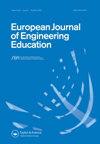紧急转向虚拟教学对学生团队动态的影响
IF 2.8
Q2 EDUCATION & EDUCATIONAL RESEARCH
引用次数: 1
摘要
尽管2019冠状病毒病大流行突然爆发,但许多采用团队教学方法的教师将教学转移到网上,而不是完全暂停教学,但时间和资源有限。为了检验2019年春季和2020年春季1500多名一年级工程专业学生每学期课程的团队动态和结果的差异,使用了Wilcoxon签名秩检验和随机森林方法。结果显示,学生在紧急过渡的学期中,在团队成员效能、心理安全感和满意度方面的改善程度较低。然而,学生们也报告了较少的冲突。在紧急转变中,预测项目成绩最重要的因素从“与队友互动”转变为“拥有相关知识、技能和能力”,同时团队相互依赖程度降低。尽管在紧急过渡期间收集了数据,但在转向虚拟合作之前进行面对面互动的基础对专门关注虚拟学习环境的研究做出了有益的贡献。本文章由计算机程序翻译,如有差异,请以英文原文为准。
The effect of the emergency shift to virtual instruction on student team dynamics
In spite of the sudden onset of the COVID-19 pandemic, many instructors who used team-based pedagogies shifted them online rather than suspending them entirely, but with limited time and resources. To examine the difference in team dynamics and outcomes for courses in Spring 2019 and Spring 2020 of over 1500 first-year engineering students per semester, Wilcoxon signed-rank tests and random forests method were used. Results show that students reported less improvement in team-member effectiveness, lower psychological safety, and less satisfaction in the semester with the emergency transition. However, students also reported lower conflict. The most important factor predicting project grades shifted from 'Interacting with teammates' to 'Having relevant knowledge, skills, and abilities' amid the emergency shift, accompanied by a reduction in team interdependence. In spite of the collection of data during an emergency transition, the foundation of face-to-face interaction before moving to virtual cooperation represents a useful contribution to research that has focused exclusively on virtual learning circumstances.
求助全文
通过发布文献求助,成功后即可免费获取论文全文。
去求助
来源期刊

European Journal of Engineering Education
EDUCATION & EDUCATIONAL RESEARCH-
CiteScore
7.30
自引率
13.00%
发文量
64
期刊介绍:
European Journal of Engineering Education is published six times a year in print and electronic editions and provides an essential forum for dialogue between researchers and specialists in the field of engineering education, at European and worldwide levels. European Journal of Engineering Education is the Official Journal of SEFI, the Socièté Européenne pour la Formation des Ingénieurs (the European Society for Engineering Education). SEFI is a non-governmental organization whose aims are to develop information about engineering education, to improve communication and exchange between professors, researchers and students and to promote cooperation between the various institutions concerned with engineering education.
 求助内容:
求助内容: 应助结果提醒方式:
应助结果提醒方式:


